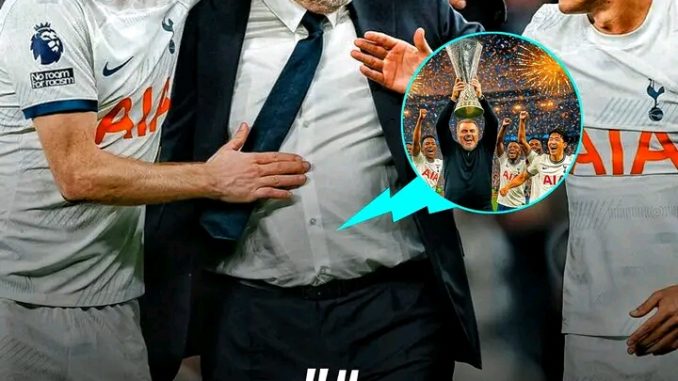
Tottenham Hotspur Head Coach Ange Postecoglou stood defiant and ultimately triumphant in the aftermath of his side’s Europa League final victory over Manchester United, a win that sensationally fulfilled his bold declaration from earlier in the season: “I always win things in my second year.”
The Australian manager, who has guided Spurs to their first piece of silverware in 17 years and their first European trophy in 41, addressed the media with a palpable sense of vindication. Having faced relentless questioning and even mockery throughout a domestically challenging second campaign, Postecoglou clarified the true intent behind his now-iconic statement.
“People misinterpreted me,” Postecoglou asserted. “It was not me boasting, just me making a declaration and I believed it. I had this thing inside me more than anything else.”1 He went on to emphasize that while the team’s Premier League form had been “unacceptable” and “nowhere near good enough,” a top-three finish would not have fundamentally altered the club’s trajectory in the same way a trophy would. “The only thing that was going to change this football club is us winning something,” he stated emphatically.
Postecoglou revealed that his focus had shifted decisively towards the Europa League after the January transfer window, a strategic decision that he admitted was “at odds with what other people at the club believed at the time.” However, his conviction never wavered. “When I said that, that was my intent. I’m not afraid to declare it. If I fell short, I was ready to cop it, but I believed in this side.”
The2 victory, secured by a Brennan Johnson goal, was deeply personal for Postecoglou, who acknowledged the immense pressure and historical burden on the club. “I know what it means for this football club. The longer it goes, the harder it is to break that cycle,” he said, describing the “nerves in everyone at the club” and the tangible relief of “taking that monkey off your back.” He expressed hope that this taste of success would imbue his young squad with a new self-belief, stating, “I hope by tasting this, the players feel different about themselves and what it means to them is unbelievable.”
Despite the Europa League triumph, speculation surrounding Postecoglou’s future at the club had persisted due to their lower-than-expected Premier League finish. However, Postecoglou made his intentions clear. “I do [want to stay],” he affirmed. “I don’t feel like I’ve completed a job here, we’re still building. My thought process and what I’ve been trying to do this year is to build a team that can be successful for four, five or six years.”
He dismissed concerns about his own position with characteristic forthrightness. “Whatever happens, happens. I’m the manager of the football club. That decision is not in my hands. It doesn’t affect me though. If it was going to affect me, you would have seen3 it.” For Postecoglou, the singular focus was on the silverware: “All I cared about was this, having this [trophy] around my neck, because if I did that meant this football club has won a trophy.”
The Australian’s triumph is a testament to his unyielding philosophy, often dubbed “Angeball,” which prioritizes aggressive, attacking football and a strong collective identity. While acknowledging the difficulties faced this season, Postecoglou’s unwavering belief in his methods has now borne tangible fruit, providing a foundation he intends to build upon for years to come.
Be the first to comment